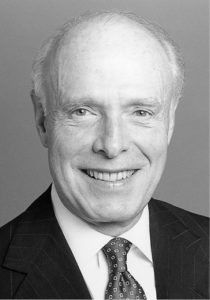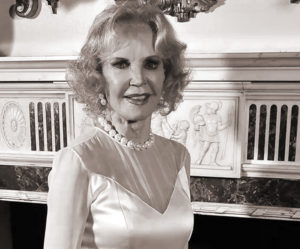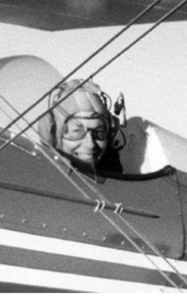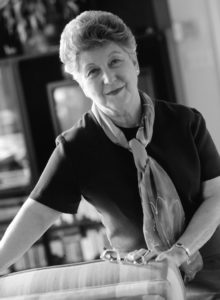
William W. Bain Jr., BA’59: Long-Term Strategist
William W. Bain Jr., an alumnus and emeritus member of the Board of Trust, died Jan. 16 at his home in Naples, Florida. He was 80 years old.
Bain founded Bain & Co., a corporate strategy consulting company, and Bain Capital, a private equity firm, after starting his career as a Vanderbilt development officer.
“Bill Bain had an extraordinary career trajectory in business consulting and finance, and it all began with the education and friendships he developed as a student and fundraiser here,” said Vanderbilt Chancellor Nicholas S. Zeppos. “While Bill was widely admired for his talent and skillful leadership, he was also known as a deeply caring individual who was a loyal and generous alumnus. We are thankful for his decades of leadership as a trustee and support for our students.”
Born in Johnson City, Tennessee, in 1937, he attended East Tennessee State College before transferring to Vanderbilt, where he majored in history. Awarded a Woodrow Wilson Fellowship for graduate study, he instead went to work in fundraising for his alma mater. He became good friends with the late Bruce Henderson, BE’37, who later taught at the Owen Graduate School of Management. Henderson successfully recruited Bain to the Boston Consulting Group in 1967.
Six years later Bain and six other partners started Bain & Co., a consulting firm that put a priority on long-term strategic plans with measurable results. Its roster of clients included Wells Fargo, Texas Instruments, Black & Decker and Monsanto.
Among Bain’s hires was Mitt Romney, future Massachusetts governor and presidential nominee. In 1984, Bain started Bain Capital, an investment partnership with private equity funds, and Romney became its chief executive. In 1993, Bain co-founded Bain Willard Companies, a private-equity investment firm.
Bain joined the Vanderbilt Board of Trust in 1989 and became an emeritus trustee in 2013. He established the William W. Bain Jr. Scholarship to provide need-based support in the College of Arts and Science, where he served on its board of visitors and Shape the Future Campaign Committee.
Bain is survived by his wife, Ann Dean Bain; four children, including Adam Bain, ’99, and Samantha Bain Enright, BS’09; a brother and three grandchildren.
—ANN MARIE DEER OWENS
 Jane Dudley, BA’47: Social Icon
Jane Dudley, BA’47: Social Icon
Jane Dudley, founder and honorary chair of the Swan Ball—one of the South’s most prestigious white-tie charity events—died in early November at her home in Nashville. She was 92.
A social icon in the Nashville, Palm Beach and international communities and picked for the International Best Dressed list, she was a lover of all things glamorous and beautiful. She loved people, and she loved a party. She put those passions to good use, chairing more than 25 charity events around the world, through which she raised millions of dollars.
In the early 1950s, Dudley chaired her first ball, the Bal d’Hiver. In 1963 she was the founding chair of the Swan Ball, the most exclusive and fabled party in Nashville and now the nation’s longest-running charity ball, which benefits Cheekwood Estate and Gardens. In Palm Beach, Florida, she was a five-time chairwoman of the Cancer Ball, bringing in her old friend Bob Hope to entertain, and was a perennial honorary chairwoman for the International Red Cross Ball.
She also served as chairwoman of galas benefiting Blenheim Palace and the World Wildlife Fund (with guest of honor Prince Charles), and for 10 years she chaired Tiffany’s Feather Ball in New York to benefit Just One Break, a charity for the disabled.
Dudley served on the boards of Tiffany and Co., Cheekwood Estate and Gardens, and the Palm Beach Cancer Society, and was a visiting member of the board of the School of American Ballet during the tenure of George Balanchine and Lincoln Kirstein. She was a member of the Garden Club of America and the Junior League
of Nashville.
The daughter of William Joseph Anderson, former coach of the Vanderbilt track team, and Nancy Joseph Anderson, she was married for 52 years, until his death in 2002, to Guilford Dudley Jr., BA’29, member of the Vanderbilt Board of Trust and former U.S. ambassador to Denmark.
She is survived by her husband, Robert Dwayne Johnson; her daughter, Trevania Dudley Henderson; a sister and a grandson.
—FROM THE TENNESSEAN AND THE PALM BEACH DAILY NEWS
 Elisabeth “Betty” Lentz Gray, BA’54, MA’55, MAT’67: Flying High
Elisabeth “Betty” Lentz Gray, BA’54, MA’55, MAT’67: Flying High
Betty Lentz Gray seemingly could do anything she set her mind to do. A scientist, mother, nationally competitive athlete in women’s doubles tennis, award-winning science teacher and, at the height of her flying career, ranked seventh in the U.S. for female aerobatic pilots, Gray died at her home in Santa Barbara, California, Sept. 28, 2017. She was 83.
At Vanderbilt, where Gray started classes at the age of 16, she was a premedical student before switching to chemistry. She met her husband-to-be, David Gray, BA’54, JD’56, and they married after graduation in 1954. She taught chemistry and physics at Father Ryan High School in Nashville and then at Brentwood Academy, where she chaired the science department. Her exemplary science-teaching career brought her the Presidential Award in Science and Mathematics Teaching in October 1990.
Afraid of heights, she took up flying and then aerobatic flying. While her children were in college, her husband bought a used Pitts S1-S aerobatic biplane from the Peruvian Air Force, and she rebuilt it. She competed in the Unlimited category and won a Silver Aerobatic Champion medal at Fond du Lac, Wisconsin, in 1988.
Gray rebuilt a Volkswagen engine in the den, received airframe and power plant certification so she could work on her own airplane, and even received refrigeration certification so she could fix the refrigerator that had been damaged in their 38-foot Cabo Rico sailboat.
She and her husband lived on their boat for seven years after they retired, cruising to the Bahamas, the Turks and Caicos, and other destinations from their home in Beaufort, North Carolina. She is survived by him and their two children.

Margaret Worthington Waters Moore, MEd’87:
The Dean’s Right Hand
Margaret W. Moore, former special assistant to all four deans of Vanderbilt Peabody College, died Nov. 15, 2017, in Blacksburg, Virginia, of amyotrophic lateral sclerosis (ALS). She was 81.
It was in 1987 that Bill Hawley—the first dean of Peabody College since its 1979 merger with Vanderbilt University—created the position of special assistant to the dean “in an attempt to bring stability, credibility and organization to the office,” Moore explained in 2001. Hawley chose Moore for the job, and she succeeded in meeting those expectations and more with competency, wisdom, unfailing professionalism, and devotion to the mission of Peabody.
Hawley and each successive dean of Peabody College—Joseph Cunningham, Jim Pellegrino and Camilla Benbow—relied on Moore to keep them informed, organized and, on occasion, level-headed. Her great interest in Peabody’s unique 230-year history prompted the college to commission the writing of Sherman Dorn’s 1996 book, A Brief History of Peabody College, in commemoration of the 200th anniversary of the birth of George Peabody, after whom the college was named in 1888. An active champion of the university’s commitment to campus diversity, she was presented an Affirmative Action and Diversity Initiatives Award. She even wrote the Peabody faculty handbook.
The youngest child of a Methodist minister, Moore grew up in Virginia and earned her bachelor’s degree in music from Westminster Choir College in New Jersey. She was an elementary schoolteacher in New Jersey and Pennsylvania for 19 years before moving to Nashville in 1981 with her husband and daughter. Unable to find a teaching job, she accepted a position in Vanderbilt’s radiology and radiological sciences department and began working on her master’s in public policy and program evaluation at Peabody College. She received the degree in 1987, the same year she started working in the dean’s office.
In May 2001, Moore retired from Vanderbilt and eventually returned to Virginia, settling in the Radford and Blacksburg areas with her sister.
From the time she could talk, Moore sang—with church choirs, community choruses and professional groups, including the New York Philharmonic and Nashville Symphony Orchestra Chorus. Music was her first love. At the time of her death, her family said, “She believed [singing] is one of God’s greatest gifts. Her deepest regret during her yearlong struggle with ALS was less about loss of ability and speech than her loss of song.”
Moore is survived by a daughter, sister, two nephews and a niece.
—PHILLIP B. TUCKER